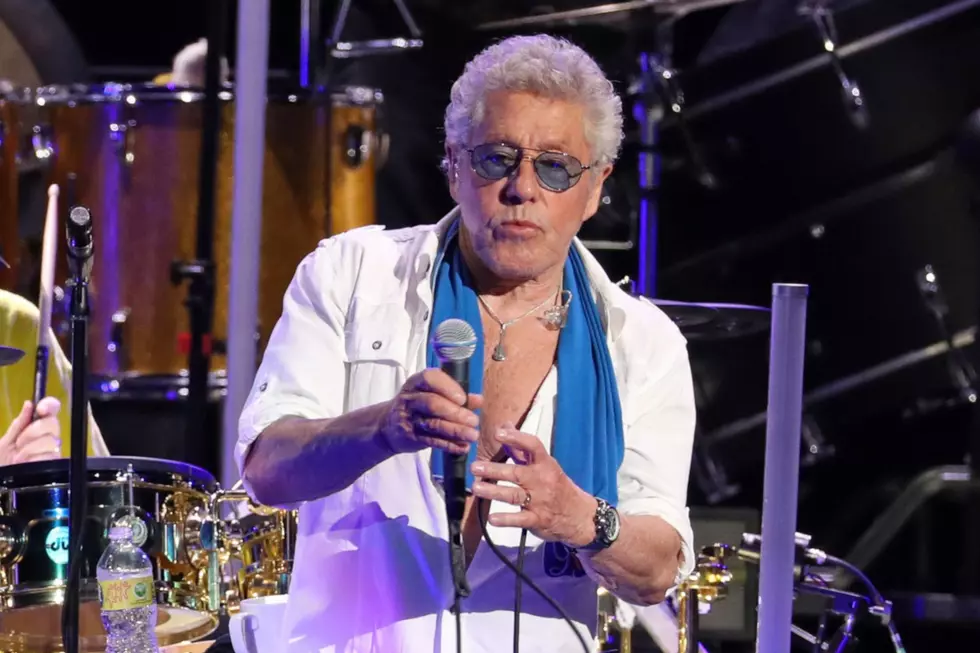
How Roger Daltrey Moved On With ‘Parting Should Be Painless’
By the time the Who called it quits in 1983, singer Roger Daltrey had already been a part-time solo artist for a decade. But when he entered the studio to record his fifth album, Parting Should Be Painless, things were different.
"My solo career during the Who was like a hobby, because the Who's schedule was simply never enough for me, and there are all kinds of music I like to sing that the Who didn't cover," Daltrey told Rolling Stone in the weeks leading up to the album's February 1984 release. "Now I've got the freedom to do what I like, when I like."
What that meant for the Parting Should Be Painless album was a concerted effort on Daltrey's part to vent his frustrations in the wake of the Who's breakup by assembling a set of roughly autobiographical songs. That was easier said than done, considering Daltrey didn't write any of the tracks that ended up on the album.
"I'm not a songwriter, but within this album I tried to get songs that – the majority of the songs, anyway – sum up my feelings in the last year," he explained during an appearance on Good Morning America. "'Parting Would Be Painless' is a song that refers to the end of the Who, yeah. Parting should be painless, but it never is. I miss them, and I miss the band."
"Parting Would Be Painless" was one of two tracks written by former Marshall Hain bassist Kit Hain, who found her songs surrounded by an impressively eclectic roster of outside writers. Daltrey had made a habit of reaching out to famous friends for writing contributions to his solo LPs, and this time around, the list included former Roxy Music frontman Bryan Ferry ("Going Strong"), Eurythmics co-founders Annie Lennox and Dave Stewart ("Somebody Told Me") and ex-Ian Gillan keyboardist Colin Towns ("How Does the Cold Wind Cry"), as well as successful professional songwriters Nicky Chinn and Simon Climie.
Listen to Roger Daltrey Perform 'Walking in My Sleep'
It was all part of Daltrey's eagerness to express different sides of his musical personality. "Pete [Townshend] and I both said the Who was an alternative to heavy metal, but toward the end, John got more into that and Pete and I further away from it," he explained to Rolling Stone. "Because we were compromising so much, we ended up just settling into what we knew how to do best. It bored me to tears, and I know it bored Pete to tears, too."
Sadly, whatever excitement Daltrey took from recording the Parting album failed to carry over to his audience. The record's first single, "Walking in My Sleep," topped out at No. 56 on the Billboard chart, while the album itself rose no higher than No. 106 – perhaps partly because many listeners still viewed Daltrey's solo career as a sideline to the Who, despite their continued insistence that the band was finished for good.
"Because of previous groups doing final tours and then doing another final tour and then another final tour, nobody believed us, but we were telling the truth," Daltrey complained during his Good Morning America interview. "Pete is fed up with it, to be really honest, and that is it. He doesn't want to do it anymore."
Daltrey continued to release solo records steadily throughout the '80s and early '90s (including 1985's commercial rebound Under a Raging Moon), but fans never stopped hoping for more Who. They were rewarded twice before the end of the decade – first with the band's 1985 Live Aid set, and again with a 25th anniversary reunion tour in 1989.
Protestations aside, Daltrey always seemed to know the band might eventually get around to its unfinished business. Telling Good Morning America that he believed Townshend "made a mistake" walking away from the group, he admitted: "Pete changes his mind a lot. I still don't know whether to believe him."
The Best Song on Every LP by the Who
Think You Know the Who?
More From Ultimate Classic Rock









